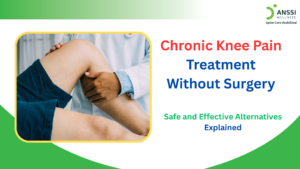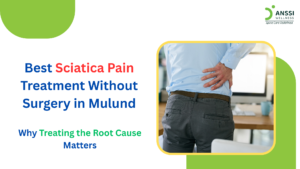Knee pain is one of the most common musculoskeletal issues people face today. Whether caused by injury, arthritis, or lifestyle habits, it can interfere with even the simplest daily activities like walking, climbing stairs, or exercising.
While surgery is sometimes recommended for severe cases, many people can find lasting relief through non-surgical treatments that target the root causes of knee pain. These approaches are safer, less invasive, and focus on improving function without long recovery periods.
Let’s explore what really works when it comes to non-surgical knee pain management.
Understanding Knee Pain
Knee pain may arise from multiple factors. Common causes include:
- Osteoarthritis: Gradual wear and tear of the joint.
- Ligament or cartilage injuries: Such as ACL tears or meniscus damage.
- Overuse and strain: From repetitive movements or improper exercise techniques.
- Obesity: Excess body weight increases stress on the knee joint.
- Age-related degeneration: Natural weakening of bones, muscles, and tissues.
The effects of knee pain go beyond discomfort. It can limit mobility, reduce independence, and affect overall quality of life. That’s why early, non-surgical management is key to preventing further damage.
Physiotherapy: Strengthening and Mobility
One of the most effective non-surgical treatments for knee pain is physiotherapy. Through guided exercises, patients strengthen the muscles around the knee, which provides better support to the joint. Stretching routines improve flexibility and reduce stiffness.
Physiotherapists also focus on correcting movement patterns, ensuring that patients walk, bend, or exercise without putting unnecessary strain on their knees. Over time, physiotherapy helps restore natural movement, builds endurance, and significantly reduces the chances of recurring pain.
For example, simple exercises like quadriceps strengthening, hamstring stretches, and low-resistance cycling can be very beneficial. When done consistently under professional guidance, physiotherapy offers long-term relief without any side effects.
Lifestyle Changes for Knee Health
Small adjustments in daily habits can make a big difference in reducing knee pain:
Weight Management
Excess weight adds tremendous pressure on knee joints. Even the loss of a few kilograms can make a big difference in discomfort and strain. Maintaining a healthy weight is one of the most important steps in preventing knee problems from worsening.
Low-Impact Exercises
Switching from high-impact activities like running to gentler exercises such as swimming, walking, or cycling helps protect the knees while still keeping the body active.
Ergonomic Support
Using supportive footwear, cushioned insoles, and avoiding prolonged standing or sitting in awkward postures can ease daily stress on the knees.
Healthy Diet
Consuming foods rich in calcium, vitamin D, and anti-inflammatory nutrients supports joint health and helps in recovery.
Orthobiologics: Regenerative Options
A newer and promising area in knee pain management is orthobiologic treatments, which use the body’s own healing properties to restore damaged tissues.
- Platelet-Rich Plasma (PRP): PRP injections concentrate platelets from the patient’s blood, which release growth factors that aid tissue repair and reduce inflammation.
- Stem Cell Therapy: Stem cells have the potential to regenerate damaged cartilage and reduce joint degeneration, offering a natural healing mechanism.
These treatments are minimally invasive and can delay or even eliminate the need for knee replacement in certain patients. While research is still evolving, many patients have reported significant improvements in mobility and pain relief.
Non-Invasive Therapies: Knee Decompression
An advanced non-surgical treatment gaining attention is the non-surgical knee decompression treatment. This method gently stretches the knee joint, creating more space between bones and reducing pressure on cartilage and nerves.
By improving circulation and nutrient flow within the joint, decompression promotes healing and reduces pain. It is a safe, drug-free, and non-invasive treatment that provides relief for patients struggling with chronic knee conditions, particularly those caused by arthritis or degeneration.
Unlike temporary painkillers, knee decompression addresses the underlying mechanical issues, helping restore function and improving quality of life.
Combining Non-Surgical Approaches
The most effective way to manage knee pain often involves a combination of treatments:
- Physiotherapy for strength and flexibility.
- Lifestyle changes to reduce strain and support healing.
- Orthobiologics to repair tissues naturally.
- Decompression treatment to restore joint function.
Together, these treatments offer a comprehensive approach that not only reduces pain but also prevents future flare-ups.
About ANSSI:
ANSSI Wellness focuses on improving the quality of life for patients suffering from spinal issues, aiming to provide relief where other conventional treatments have failed. Through advanced Non-Surgical Knee Decompression Treatment, ANSSI is committed to helping patients avoid surgery and recover in a safe, effective, and compassionate environment.
Connect with ANSSI Wellness on LinkedIn, Instagram, and Facebook for expert guidance.




